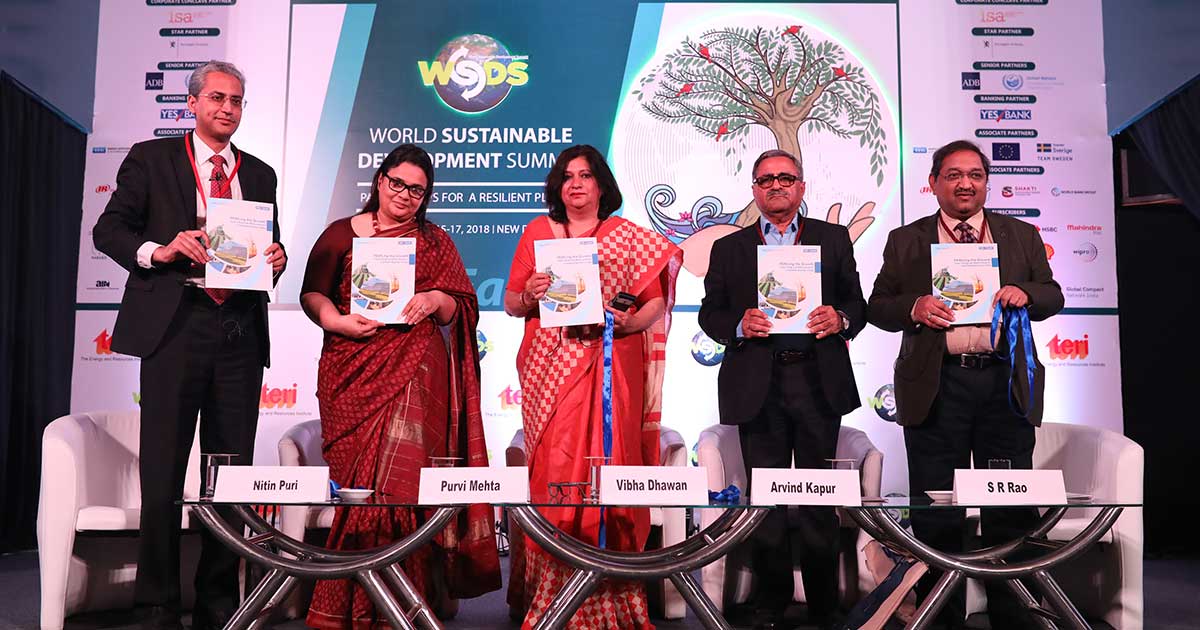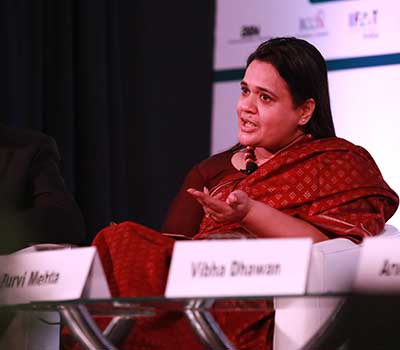
Look towards the Market to Increase Farmer Income
 The Yes Bank report 'FEWLing the Growth: Food, Energy and Water Nexus for Livelihood Security in India' was launched at the end of the session
The Yes Bank report 'FEWLing the Growth: Food, Energy and Water Nexus for Livelihood Security in India' was launched at the end of the session
Doubling farmers' incomes was the focal point of this plenary. The panelists opined that in order to pursue this goal it is necessary to have a larger role for the private sector in Indian. The need is to make farming profitable for the farmer, and, at the consumer’s end, ensure the food we eat is actually nutritious, said Dr Vibha Dhawan, Distinguished Fellow and Senior Director, TERI.
Citing data from the ICRIER, Mr S R Rao, Adviser, Department of Biotechnology (DBT), said the compound annual growth rate (CAGR) of agriculture last year was the lowest in many years—just 2%—and doubling farm income means this figure has to be taken to 10.5%. He also said the Department of Agriculture has 14 reports (9 are available on the website) that deal with post-harvest interventions, science and technology, crop insurance, and so on that are open for comments.
 Dr Purvi Mehta cautioned against doubling farmers’ income at the cost of sustainability
Dr Purvi Mehta cautioned against doubling farmers’ income at the cost of sustainability
Talking about the difference technology makes, he said the growth of Bt Cotton had leapfrogged with just one gene having been changed, but such success stories are camouflaged in the media and there is opposition to such crops. He concluded by saying that the delivery mechanism and infrastructure in rural areas requires a lot of private-sector intervention, especially to see the last-mile connectivity through.
This view was also shared by Dr Arvind Kapur, MD, Acsen HyVeg (P) Ltd., who said that to improve farmer income, the areas of focus should be private participation, land aggregation, and efficient marketing. He also stressed on farm mechanization, technology, and farmer support as more productivity may not always mean an increase in income. As an example, he said the increase in production of pulses in the past two years reduced prices, ultimately hurting farmers. As a solution, he posed a question: Why can't we brand millets as a healthy food the same way as oats that have taken over breakfast plates?
Coming to organic agriculture, he pointed that India does not have much organic matter left in the soil because of our cropping patterns over the past few decades. "I am not against organic farming, but we need time for that," he said.
Dr Purvi Mehta, Head of Asia, Agriculture, Bill and Melinda Gates Foundation, said that increasing farmers’ income is difficult but not impossible and some farmers have already done it, on their own. She also stressed on infrastructure improvement, diversification, and, especially, market access.
She also suggested a paradigm shift in looking at the matter. A farmer farms because he is interested in earning, not because he wants to contribute to the country's production. Hence, the ways to increase his income may not always be ways that increase crop productivity.
Citing an example, she said that if a farmer has an acre of land with crops and some mango trees, the way to increase his income would be not to grow more mangoes but to cut down the trees and sell their wood. However, that is not sustainable. Hence, in our hurry to double farmers' incomes we cannot sacrifice sustainability.
The plenary ended with the launch of the Yes Bank report 'FEWLing the Growth: Food, Energy and Water Nexus for Livelihood Security in India'.